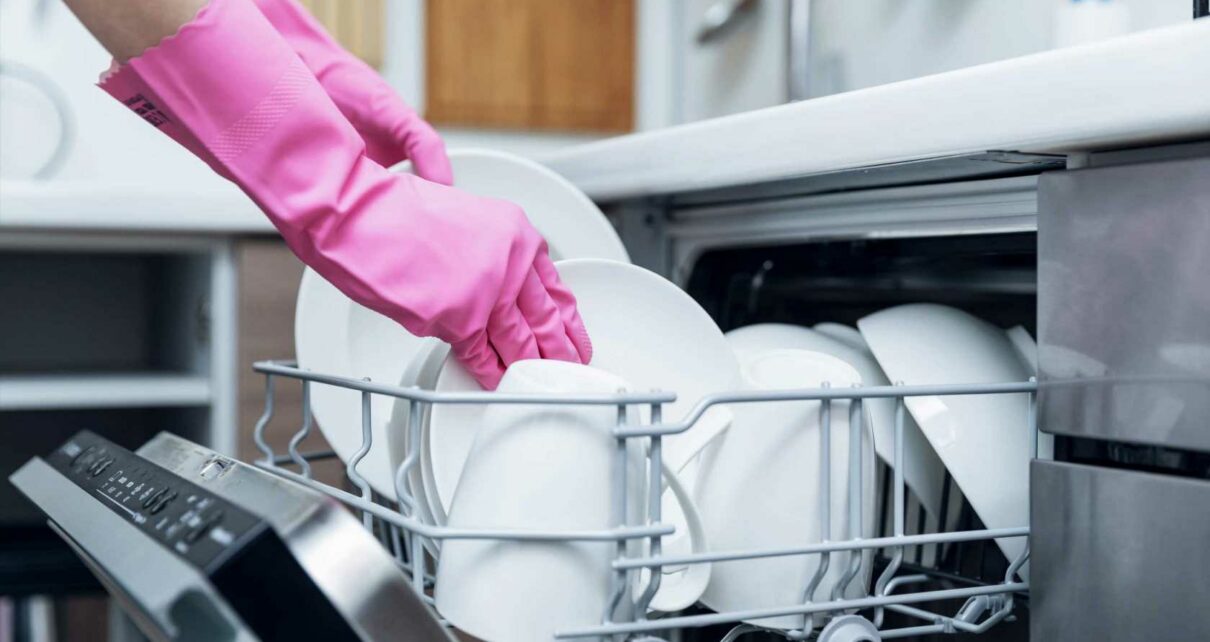NO one likes doing the washing up, so many of us choose to use a dishwasher just because it's easier and less hassle – but they're costly. to run.
The average dishwasher uses between 1.2kWh and 1.5kWh per load, according to research by Compare The Market.

And according to Energy Saving Trust, your dishwasher contributes to 8% of your overall electricity bill.
The price to run a single cycle is 27p under the current Energy Price Guarantee.
Remember, modern dishwashers use much less water than washing by hand – so they should be cheaper to run and better for the environment.
But there are still ways to cut dishwasher costs.
Read more in money

How much does it cost to run a dishwasher?

How much does it cost to run a heated clothes airer?
As well as running the device itself, you have to power the heating of the water which generally pushes up the cost considerably.
Your normal dishwasher setting is usually set at a temperature of between 55ºC and 65ºC.
But you could save cash by running your machine at a lower temperature with the help of a few different settings.
An eco wash or energy-saving setting generally uses around 20% to 40% less energy, according to Which?.
Most read in Money

Brits on Universal Credit to get £301 Cost of Living cash from TODAY

Exact code to spot when £301 cost of living payment lands in your bank TODAY

Primark issues major online shopping update – and customers will love it

Cadbury is launching a new flavour Twirl – and choc fans can't wait to try it
They generally run at 45ºC to 50ºC, which means it's cheaper to run but still gets your dishes clean.
These settings usually use less water too, but run for longer than a standard wash.
According to Bosch, using eco-mode compared to the auto programme will save you around 523 kWh of energy over a year.
One kWh of electricity currently costs 33.21p – so that's a saving of £173.69 over a year.
Some dishwashers also have a sensor wash mode that automatically detects the required water temperature based on how dirty the dishes are.
If you use a setting to get very dirty dishes clean this usually runs at a higher-than-normal temperature, so will cost more.
It's worth checking your user manual to see how the settings work as you could cut your energy bill by choosing one that runs at a lower temperature.
How much you can save will depend on the model you have and how much you use it.
More ways to save on washing dishes
An inefficient dishwasher could be adding more than £500 to your energy bills over its lifetime, according to Which?.
Choosing an energy-efficient dishwasher could save you cash so look out for labels if you're buying a new one.
A rating system from A to G will show you how efficient an appliance is with A the best and G being the worst.
Waiting until you have a full load could reduce your running costs, as you're using the same amount of water and energy regardless of how many items are in the machine.
Some dishwashers have a half load option, but this can still use up to 90% of the water and energy used by a full load, Which? says.
Equally over-filling the machine – just like overfilling your fridge – could make it run less efficiently.
The lower level of the dishwasher is where both the highest pressure and hot water are, so load your dirtiest items here.
To make running a dishwasher cheaper, make sure you scrape all the food from your dishes before loading up the machine.
Some energy suppliers offer different day and night rates that make it cheaper to run things like dishwashers at night, but you'll need to be on a specific tariff.
Modern dishwashers use less water than washing by hand so should be cheaper to run.
Research by Compare The Market has shown that a single dishwasher cycle costs the same in energy and water as turning the hot water tap on for six to nine minutes or filling up four to six washing-up bowls.
On average, washing your dishes by hand uses four times as much warm water as putting the same number of items in the dishwasher.
If you've only got a few dirty dishes, it might be worth washing them by hand rather than putting the dishwasher on though.
If you are doing this, don't leave the tap running while you wash up – this will add another £60 a year to your bill, according to Octopus Energy.
Source: Read Full Article


